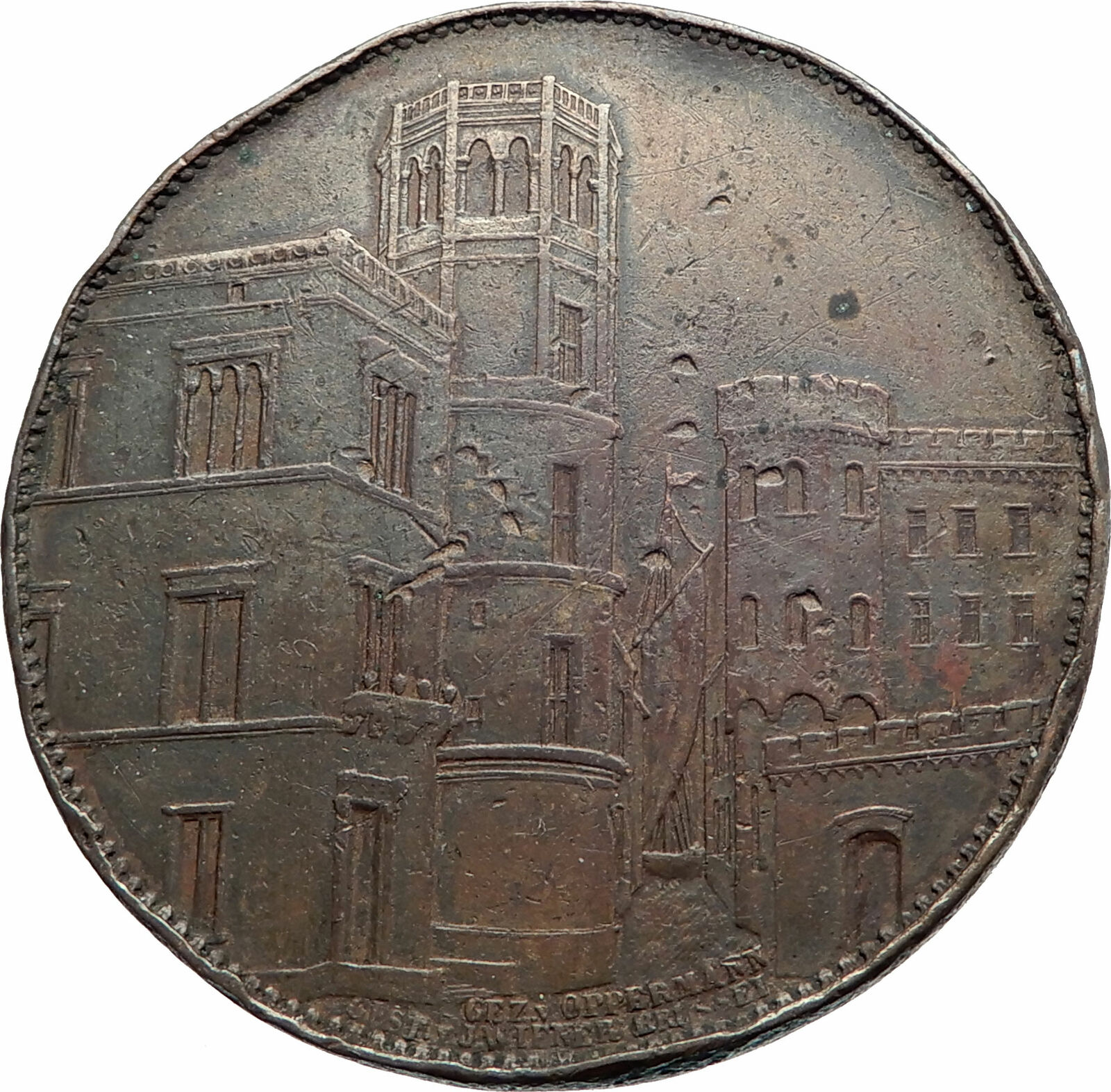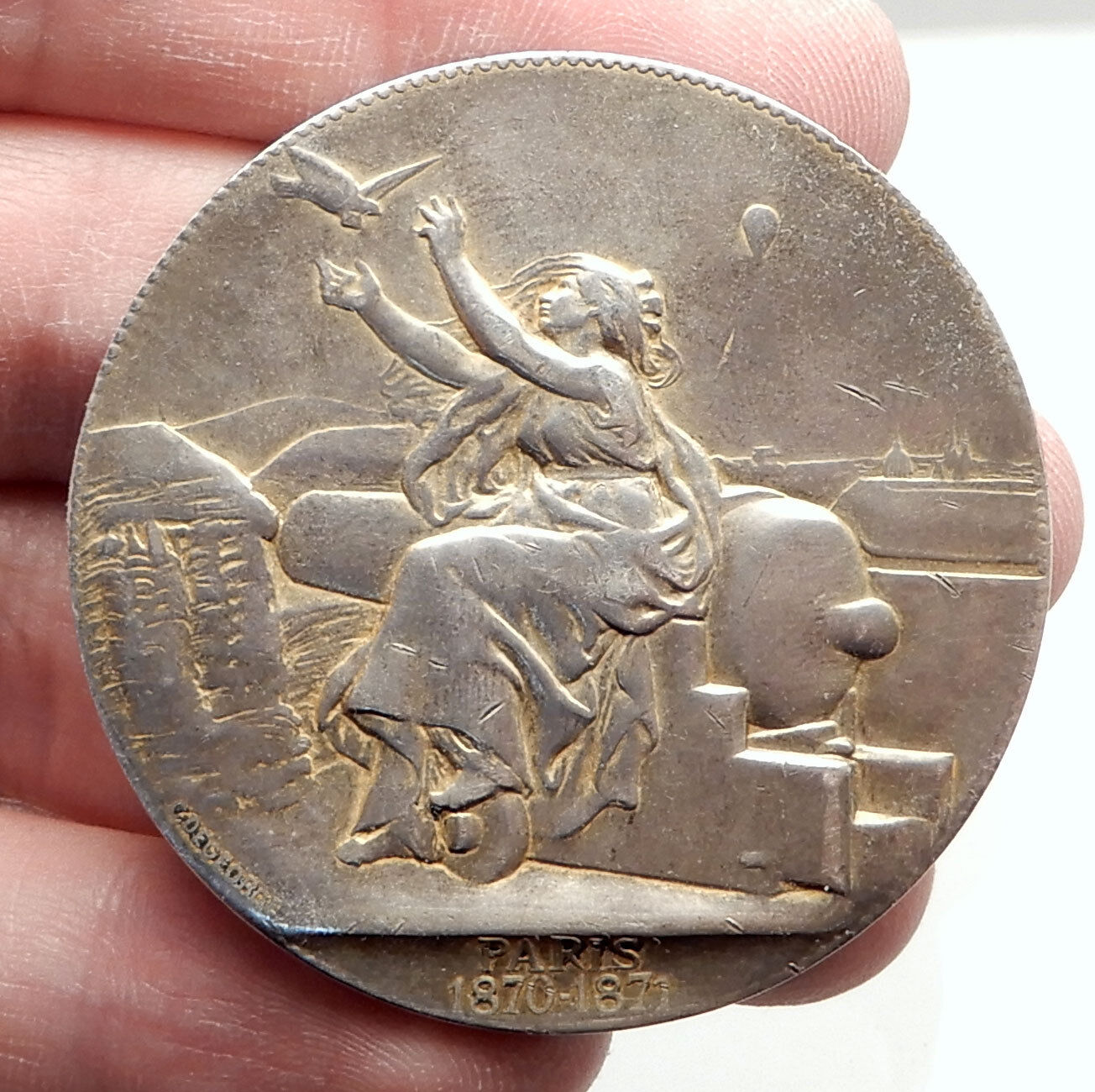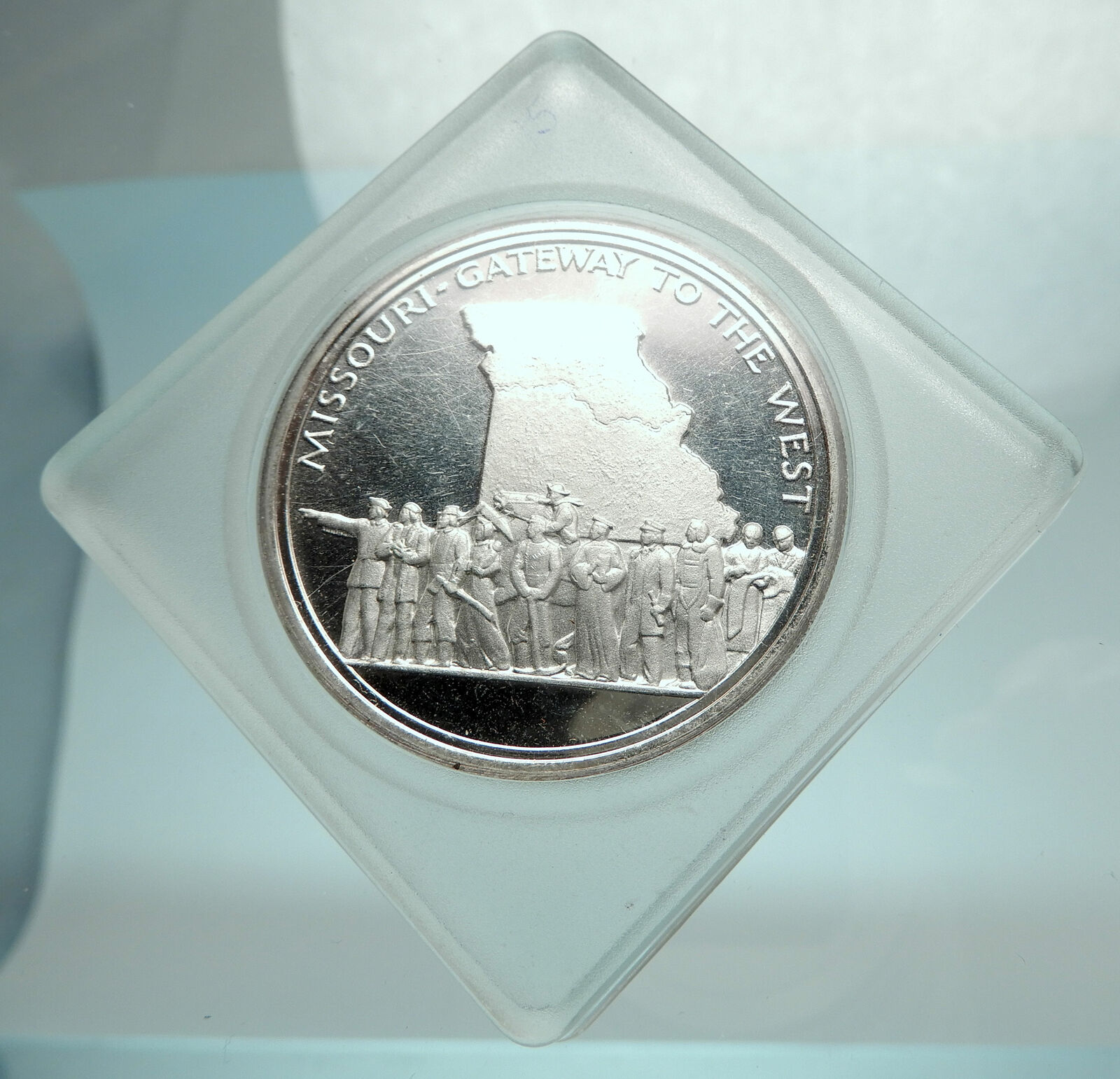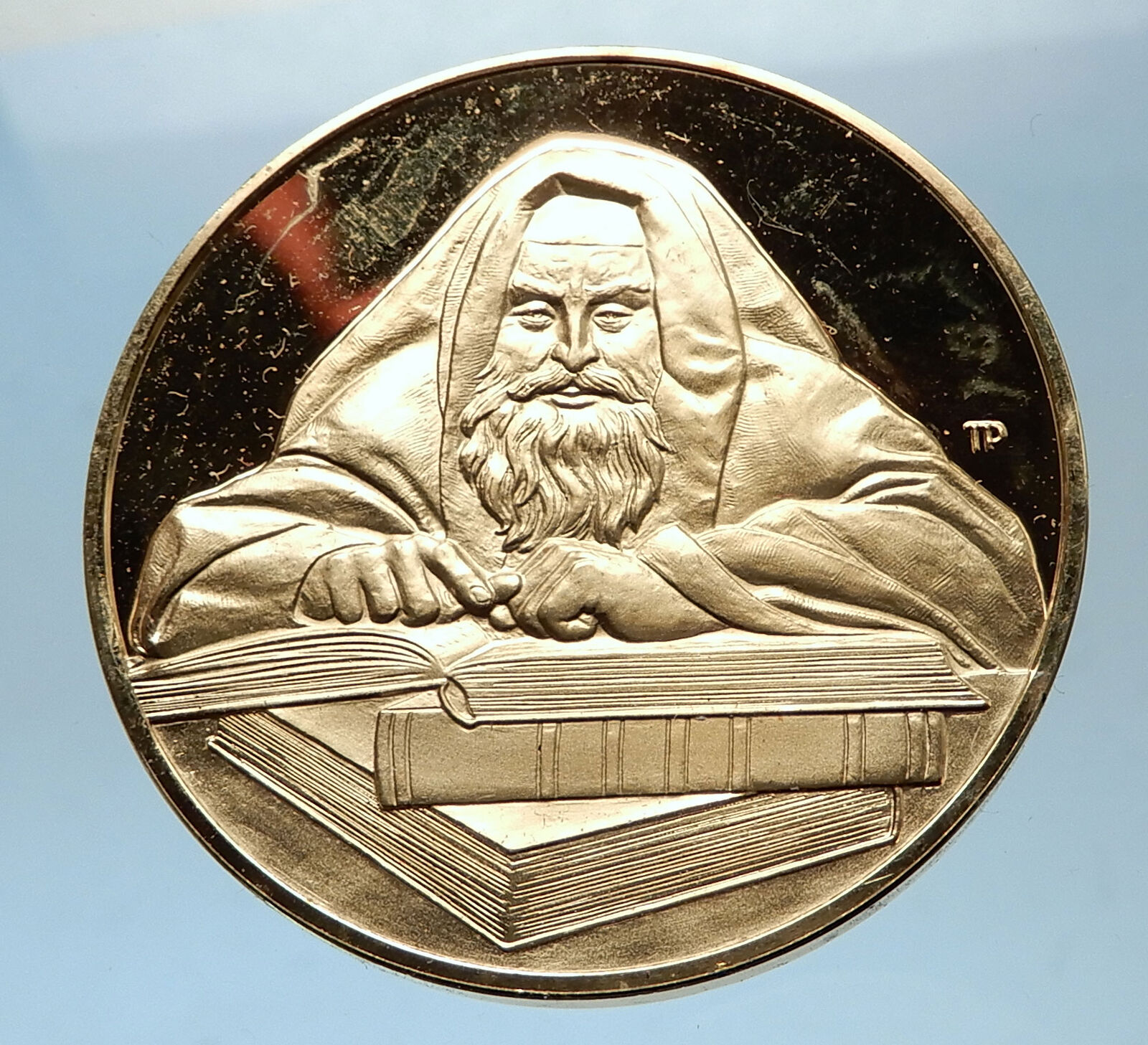|
France. Bordeaux. Society of Medicine
Hippocrates
1800-1900 A.D. Silver Medal 26mm (8.09 grams) by Brenet
Head of the ancient Greek physician Hippocrates right.
SOCIETE DE MEDECINE DE BORDEAUX with star above and two crossed branches below.
You are bidding on the exact item pictured, provided with a Certificate of Authenticity and Lifetime Guarantee of Authenticity.
The Hippocratic Oath is an oath historically taken by physicians. It is one of the most widely known of Greek medical texts. In its original form, it requires a new physician to swear, by a number of healing gods, to uphold specific ethical standards. The Oath is the earliest expression of medical ethics in the Western world, establishing several principles of medical ethics which remain of paramount significance today. These include the principles of medical confidentiality and non-maleficence. As the seminal articulation of certain principles that continue to guide and inform medical practice, the ancient text is of more than historic and symbolic value. Swearing a modified form of the Oath remains a rite of passage for medical graduates in many countries.
Hippocrates is often called the father of medicine in Western culture. The original oath was written in Ionic Greek, between the fifth and third centuries BC. It is usually included in the Hippocratic Corpus.
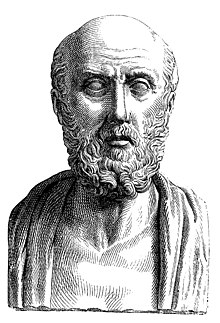 Hippocrates of Kos (c. 460 – c. 370 BC), also known as Hippocrates II, was a Greek physician of the Age of Pericles (Classical Greece), who is considered one of the most outstanding figures in the history of medicine. He is often referred to as the “Father of Medicine” in recognition of his lasting contributions to the field as the founder of the Hippocratic School of Medicine. This intellectual school revolutionized medicine in ancient Greece, establishing it as a discipline distinct from other fields with which it had traditionally been associated (theurgy and philosophy), thus establishing medicine as a profession. Hippocrates of Kos (c. 460 – c. 370 BC), also known as Hippocrates II, was a Greek physician of the Age of Pericles (Classical Greece), who is considered one of the most outstanding figures in the history of medicine. He is often referred to as the “Father of Medicine” in recognition of his lasting contributions to the field as the founder of the Hippocratic School of Medicine. This intellectual school revolutionized medicine in ancient Greece, establishing it as a discipline distinct from other fields with which it had traditionally been associated (theurgy and philosophy), thus establishing medicine as a profession.
However, the achievements of the writers of the Corpus, the practitioners of Hippocratic medicine and the actions of Hippocrates himself were often commingled; thus very little is known about what Hippocrates actually thought, wrote, and did. Hippocrates is commonly portrayed as the paragon of the ancient physician, and credited with coining the Hippocratic Oath, which is still relevant and in use today. He is also credited with greatly advancing the systematic study of clinical medicine, summing up the medical knowledge of previous schools, and prescribing practices for physicians through the Hippocratic Corpus and other works.
Historians agree that Hippocrates was born around the year 460 BC on the Greek island of Kos; other biographical information, however, is likely to be untrue.
Soranus of Ephesus, a 2nd-century Greek physician, was Hippocrates’ first biographer and is the source of most personal information about him. Later biographies are in the Suda of the 10th century AD, and in the works of John Tzetzes, Aristotle’s “Politics”, which date from the 4th century BC.
Soranus wrote that Hippocrates’ father was Heraclides, a physician, and his mother was Praxitela, daughter of Tizane. The two sons of Hippocrates, Thessalus and Draco, and his son-in-law, Polybus, were his students. According to Galen, a later physician, Polybus was Hippocrates’ true successor, while Thessalus and Draco each had a son named Hippocrates (Hippocrates III and IV).
Soranus said that Hippocrates learned medicine from his father and grandfather (Hippocrates I), and studied other subjects with Democritus and Gorgias. Hippocrates was probably trained at the asklepieion of Kos, and took lessons from the Thracian physician Herodicus of Selymbria. Plato mentions Hippocrates in two of his dialogues: in Protagoras, Plato describes Hippocrates as “Hippocrates of Kos, the Asclepiad”; while in Phaedrus, Plato suggests that “Hippocrates the Asclepiad” thought that a complete knowledge of the nature of the body was necessary for medicine. Hippocrates taught and practiced medicine throughout his life, traveling at least as far as Thessaly, Thrace, and the Sea of Marmara. Several different accounts of his death exist. He died, probably in Larissa, at the age of 83, 85 or 90, though some say he lived to be well over 100.
 Bordeaux is a port city on the Garonne in the Gironde department in Southwestern France. Bordeaux is a port city on the Garonne in the Gironde department in Southwestern France.
The municipality (commune) of Bordeaux proper has a population of 246,586 (2014). Together with its suburbs and satellite towns, Bordeaux is the centre of the Bordeaux Métropole. With 1,195,335 in the metropolitan area, it is the sixth-largest in France, after Paris, Marseille, Lyon, Toulouse, and Lille. It is the capital of the Nouvelle-Aquitaine region, as well as the prefecture of the Gironde department. Its inhabitants are called “Bordelais” (for men) or “Bordelaises” (women). The term “Bordelais” may also refer to the city and its surrounding region.
Being at the center of a major wine-growing and wine-producing region, Bordeaux remains a prominent powerhouse and exercises significant influence on the world wine industry although no wine production is conducted within the city limits. It is home to the world’s main wine fair, Vinexpo, and the wine economy in the metro area takes in 14.5 billion euros each year. Bordeaux wine has been produced in the region since the 8th century. The historic part of the city is on the UNESCO World Heritage List as “an outstanding urban and architectural ensemble” of the 18th century. After Paris, Bordeaux has the highest number of preserved historical buildings of any city in France.
|





 Hippocrates of Kos (c. 460 – c. 370 BC), also known as Hippocrates II, was a Greek physician of the Age of Pericles (Classical Greece), who is considered one of the most outstanding figures in the history of medicine. He is often referred to as the “Father of Medicine” in recognition of his lasting contributions to the field as the founder of the Hippocratic School of Medicine. This intellectual school revolutionized medicine in ancient Greece, establishing it as a discipline distinct from other fields with which it had traditionally been associated (theurgy and philosophy), thus establishing medicine as a profession.
Hippocrates of Kos (c. 460 – c. 370 BC), also known as Hippocrates II, was a Greek physician of the Age of Pericles (Classical Greece), who is considered one of the most outstanding figures in the history of medicine. He is often referred to as the “Father of Medicine” in recognition of his lasting contributions to the field as the founder of the Hippocratic School of Medicine. This intellectual school revolutionized medicine in ancient Greece, establishing it as a discipline distinct from other fields with which it had traditionally been associated (theurgy and philosophy), thus establishing medicine as a profession.  Bordeaux is a port city on the Garonne in the Gironde department in Southwestern France.
Bordeaux is a port city on the Garonne in the Gironde department in Southwestern France. 

